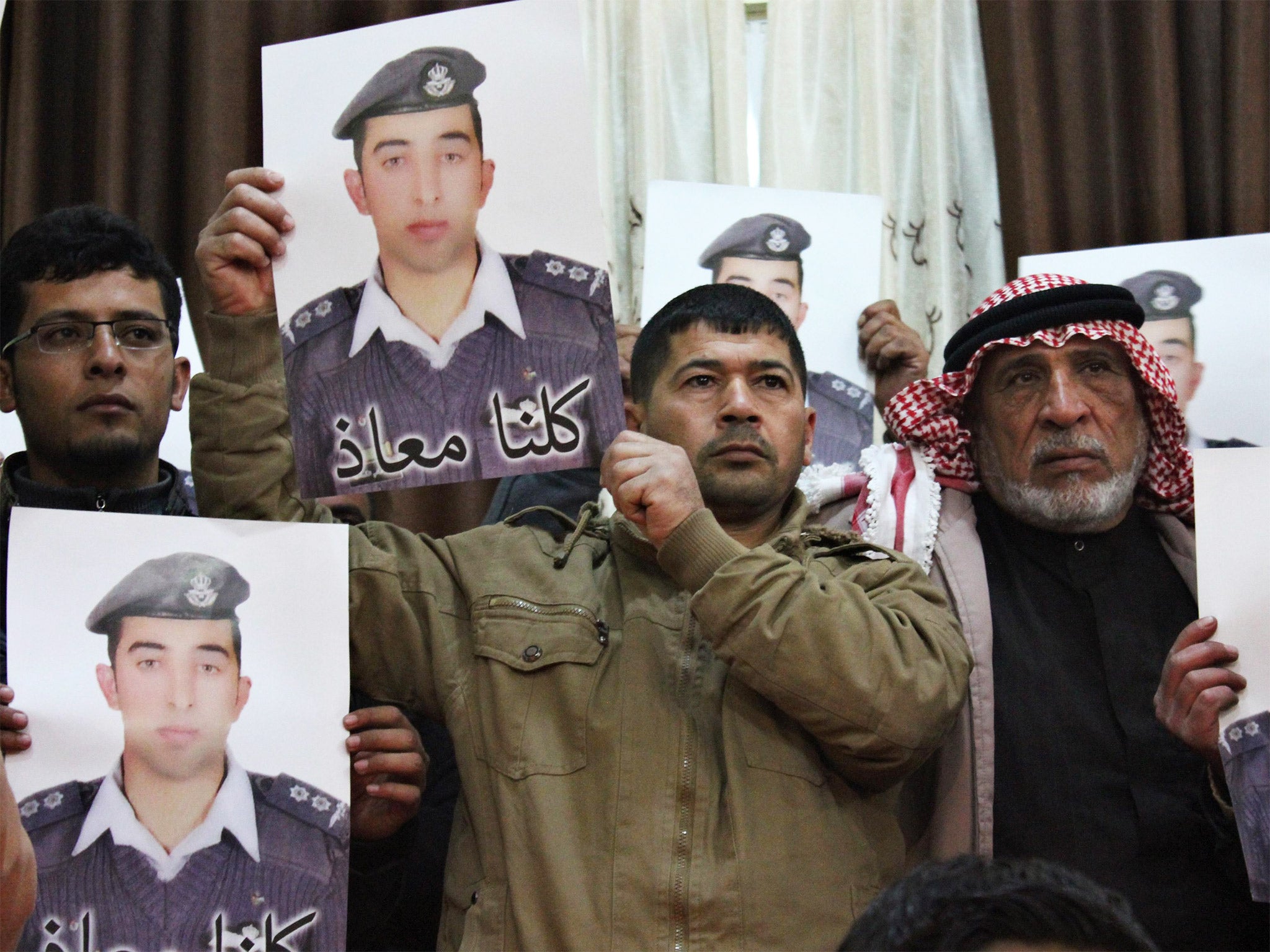Muath al-Kasaesbeh video: Genghis Khan-style cruelty of Isis shows Jordan and Japan what the militants think of them
The tens of thousands of Sunni Muslims who had demanded the pilot be freed now know what their fellow Muslims in Syria and Iraq had in mind for him


Your support helps us to tell the story
From reproductive rights to climate change to Big Tech, The Independent is on the ground when the story is developing. Whether it's investigating the financials of Elon Musk's pro-Trump PAC or producing our latest documentary, 'The A Word', which shines a light on the American women fighting for reproductive rights, we know how important it is to parse out the facts from the messaging.
At such a critical moment in US history, we need reporters on the ground. Your donation allows us to keep sending journalists to speak to both sides of the story.
The Independent is trusted by Americans across the entire political spectrum. And unlike many other quality news outlets, we choose not to lock Americans out of our reporting and analysis with paywalls. We believe quality journalism should be available to everyone, paid for by those who can afford it.
Your support makes all the difference.So they burned him in hellfire. That was what Islamic State (Isis) wanted to show the world. This was Genghis Khan-style cruelty. First, Isis forced the Jordanians and the Japanese to acknowledge its power - by offering a Japanese journalist as bait for negotiations - and then showed the Jordanian king and the Japanese prime minister what it thought of them. The Jordanians had demanded proof that Flt Lt Muath al-Kasaesbeh was alive, and they were given their evidence – as he was led into his cage of fire. The Syrian military could have warned King Abdullah of Jordan what to expect: months ago, Isis put captive Syrian soldiers to the torch – and then barbecued their heads on video. And no-one said a word.
For King Abdullah, who had offered the failed al-Qaeda suicide-bomber Sajida al-Rishawi as payment for al-Kasaesbeh’s life, there may, most dreadfully, be advantage in the burning alive of his young pilot. Those tens of thousands of Jordanian Sunni Muslims who had demanded he free al-Kasaesbeh now know what their fellow Muslims in Syria and Iraq had in mind for him. But who among the Arabs will not now also question the cost of supporting the American war against Isis?
Of which – and the clergy of the European Middle Ages would agree – the fires of hell are most painful of all. But many Muslims may see, in Isis's’ frightful action, one awful misdirection of God’s message. For it is God who must visit the ‘pretenders’ with punishment. God is the judge on the day of judgement. Not Abu Bakr al-Baghdadi or the Isis media men who filmed the cage and the poor man writhing in torment within under the torrent of petroleum. It is, of course, for the Muslim world to decide on this strange interpretation, but there will be ruthless leaders aplenty – Bashar al-Assad of Syria comes to mind, now that we have decided that his enemies are even more horrible than him – who will benefit from the cruelty of the last few hours.
Long before Isis butchered the Iraqi army and Iraq’s Shias, and put the Christian and Yazidi peoples to flight, it was chopping up the corpses of the Syrian government’s supporters and sending videotapes of their decapitation to their families before releasing them to a public which largely preferred to look aside. It is not Isis which has changed. It is us. Our intolerance of the autocrats of the Middle East – of the al-Sissis and al-Assads, of the Hashemite monarchy, of the quivering princes of the Gulf, even of the Supreme Leader of Iran, Ayatollah Khamenei – is already mutating in the face of the Caliphate. All must surely become our ‘moderates’ again, those who wish to ‘unite against terror’ now that we gaze upon the fires of hell in Raqaa and Mosul.
For Isis, their Muslim enemies must, by definition, be traitors to their faith. And so we may re-read the Khalidi translation with special care. “And if someone says to them: ‘Do not sow discord in the earth,’ they answer: We are merely trying to bring people together”.
Which is what the ‘moderates’ say, of course. And poor Flt Lt al-Kasaesbeh, in his agony.